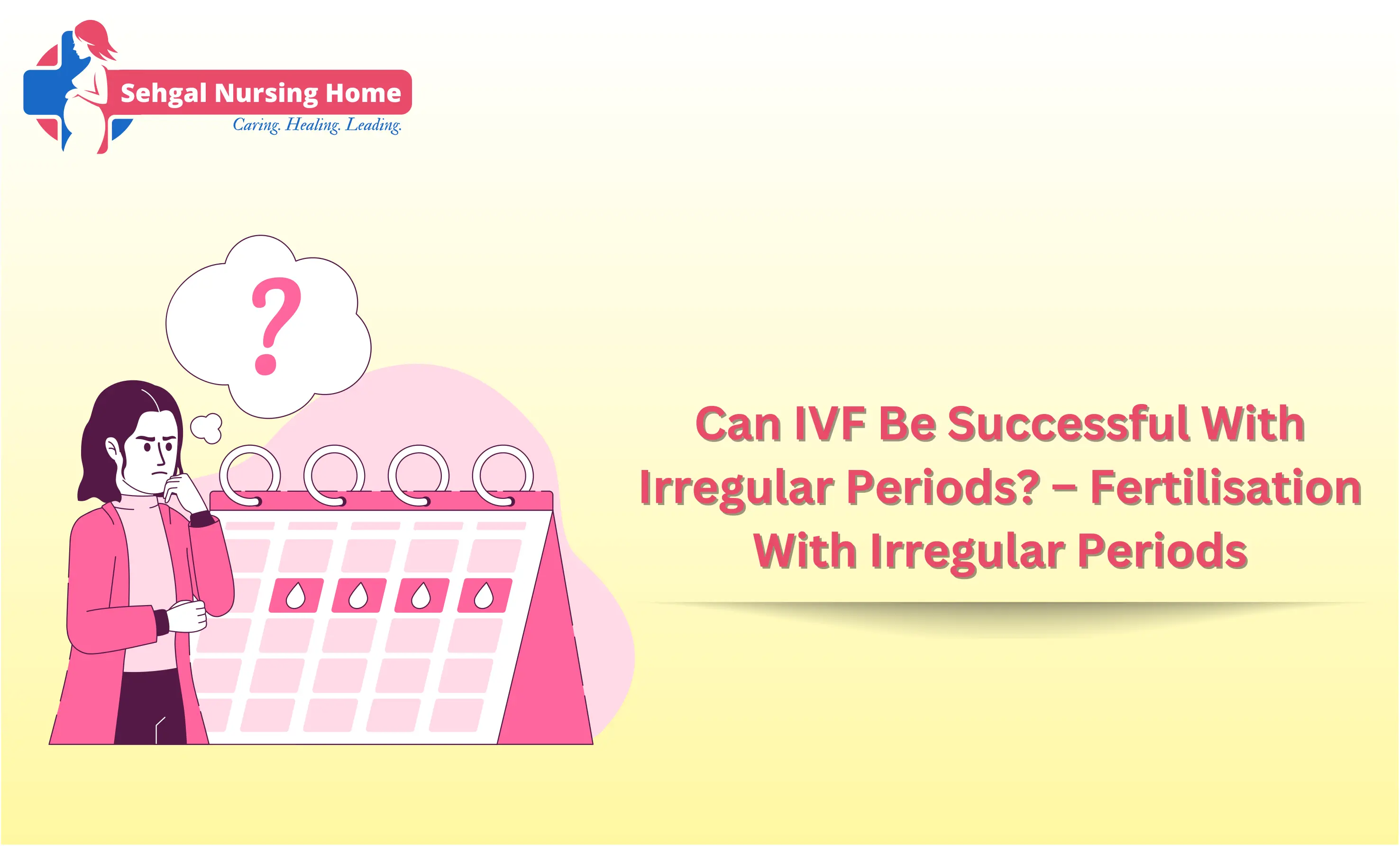Can IVF Be Successful With Irregular Periods? – Fertilisation With Irregular Periods

For some women whose periods are not regular, planning a pregnancy feels like a huge burden. Persistence or unpredictability of the cycle is a pointer to ovulatory problems that affect fertility directly. This is a valid question. Can IVF treatment prove successful in case of irregular periods?
The simplest answer is yes, IVF can be used productively with women of irregular cycles. The process, results, and methodology can, however, vary when it comes to women with regular cycles. Let us discuss this at length.
What Do Irregular Periods Mean?
An irregular menstrual cycle refers to one that is regularly less than 24 days in a month, more than 35 days a month or has considerable changes in cycles. In other women, menstrual periods will cease.
Common causes include:
- Polycystic Ovary Syndrome (PCOS): It is a significant reason behind the development of irregular menstrual periods caused by a hormonal imbalance.
- Thyroid Problems: Periods are influenced by both hyper and hypothyroidism.
- Elevated Levels of Stress: Stress can affect the distortion of hormone production.
- Fluctuations in weight: rapid increases or drops in weight hurt ovulation.
- Premature Ovarian Insufficiency: There is premature failure of the ovaries before the age of 40.
The irregular periods are, in most instances, attributed to irregular ovulation, which makes natural conception hard.
Why Irregular Periods Affect Fertility
- Irregular Ovulation: One is also not certain when to plan a conception without knowing when an egg is released.
- Hormonal Imbalance: Hormonal imbalance can hamper egg quality and the receptivity of the uterus.
- Underlying Disorders: PCOS, thyroid disease and insulin resistance can have a direct negative effect on fertility.
That is the reason why women with irregular flow need medical assistance when trying to conceive.
IVF and Irregular Periods – How Does It Work?
IVF (In-Vitro Fertilisation) interrupts the vagaries of irregular menstrual periods. Rather than waiting to ovulate, medicines and tracking are used to regulate the development of eggs and fertilisation.
The following is how IVF helps women who have irregular cycles:
- Ovarian Stimulation: Infertility medications are used to activate the production of multiple eggs, even though normal ovulation may not take place.
- Egg Retrieval: After the maturation of follicles, eggs are harvested in a slight operation.
- Fertilisation in Lab: The lab fertilisation of eggs through sperm is done in an organised facility.
- Embryo Transfer: Healthy embryos are implanted into the uterus when the lining has been prepared by giving hormones.
- Pregnancy Test: A test meant to determine the scope of the pregnancy is taken in the blood after some two weeks.
By regulating the ovulation and fertilisation process, IVF forms a trusted method of getting pregnant even in cases where ovulation time is irregular.
Success Rates of IVF in Women With Irregular Periods
Depending on the cause of irregularity, the success of IVF is based on other factors:
- PCOS-related irregular cycles: Response to ovarian stimulation is usually good, and this results in high success rates in IVF.
- Hormonal conditions (thyroid, prolactin): After being rectified, such conditions in general respond well to IVF.
- Premature ovarian insufficiency: IVF might necessitate the use of donor eggs since the egg quality and quantity are drastically declined.
- Age of the woman: Young women with irregular menstrual cycles have a better chance of success in the IVF procedure than older women above 40 years.
It has been found that women with irregular menstrual cycles may achieve pregnancy rates similar to women with regular menstrual cycles, provided special IVF procedures are carried out to suit their needs.
Suggest to Read :- What To Eat After Abortion For Fast Recovery
How to Improve IVF Success With Irregular Periods
- Early Medical Check: Early medical check-ups determine the root cause of irregular cycles: through blood checks, ultrasounds and hormone checks.
- Take Lifestyle Advice: A Healthy weight, low stress, and a balanced diet enhance the results of IVF.
- Follow Up Closely During Treatment: Scans and blood tests will help in real-time adjustment of doses in a realistic way.
- Donor Egg IVF (As Needed): In women who have a very low ovarian reserve, donor egg IVF offers the most probable opportunity.
Conclusion
So, can IVF be successful with irregular periods? The answer is yes—modern reproductive medicine has made it possible for women with unpredictable cycles to achieve pregnancy. IVF removes the uncertainty of ovulation by controlling the process medically, offering a reliable path to parenthood.
For women struggling with irregular cycles, seeking early medical advice, identifying the underlying cause, and choosing the right treatment plan are the keys to success. With proper evaluation and the support of a qualified IVF centre in Delhi, irregular periods do not have to stand in the way of building a family.
